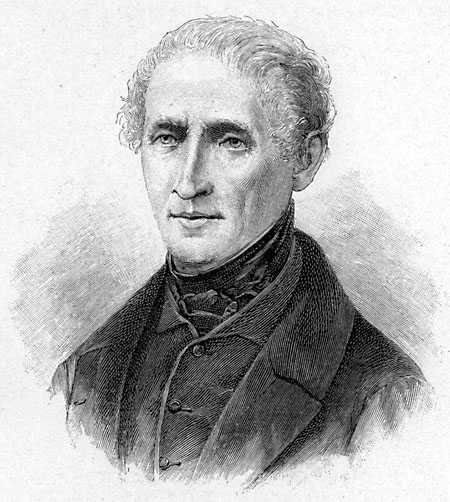20200710
注解: 手指向下或右滑,翻到下一页,向上或左滑,到上一页。
艾兴多尔夫

简介
艾兴多尔夫(1788—1857),德国浪漫主义诗人和作家。1788年3月10日生于上西里西亚拉蒂博尔附近的卢博维茨府邸(现属波兰)。出身古老的贵族世家,信奉天主教。1805至1807年在哈勒大学攻读哲学和法律。在海得尔堡结识了布伦坦诺、阿尔尼姆、格勒斯等浪漫派代表人物,并开始发表诗歌。1810年在维也纳和弗里德里希·施莱格尔交往。1813年解放战争开始,他参加吕楚自由军团任军官,1816年在普鲁士政府部门供职。1831年开始因信奉天主教常受排挤,1844年被迫辞去公职,成为自由作家。1857年11月26日在尼斯去世。
Eichendorff first became famous for his 1826 novella Aus dem Leben eines Taugenichts (freely translated: Memoirs of a Good-for-Nothing)[4] and his poems.[5] The Memoirs of a Good-for-Nothing is a typical Romantic novella whose main themes are wanderlust and love. The protagonist, the son of a miller, rejects his father's trade and becomes a gardener at a Viennese palace where he subsequently falls in love with the local duke's daughter. As, with his lowly status, she is unattainable for him, he escapes to Italy - only to return and learn that she is the duke's adopted daughter, and thus within his social reach.[1] With its combination of dream world and realism, Memoirs of a Good-for-Nothing is considered to be a high point of Romantic fiction. One critic stated that Eichendorff's Good-for-Nothing is the "personification of love of nature and an obsession with hiking."[6] Thomas Mann called Eichendorff's Good-for-Nothing a combination of "the purity of the folk song and the fairy tale."[7]
Many of Eichendorff's poems were first published as integral parts of his novellas and stories, where they are often performed in song by one of the protagonists.[8] The novella Good-for-Nothing alone contains 54 poems.[9]